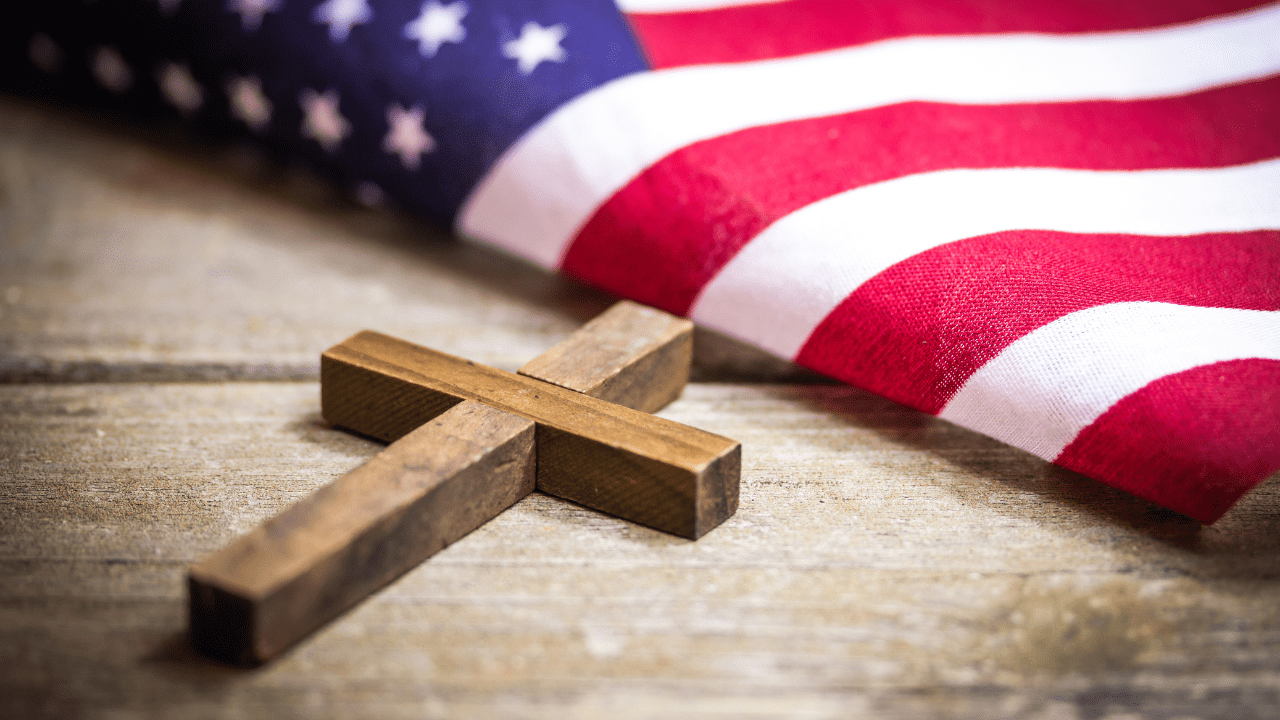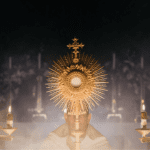Americans are known for their intense patriotism and sometimes this carries over to Catholic life. Many Catholics are proud of their church and think the U.S. church is the strongest member of the Universal Church.
There are a lot of strengths in the U.S. church, but also many weaknesses. Let’s look at both.
Strengths of the U.S. Catholic Church
1. Liturgical trends in the U.S. are (mostly) moving in the right direction.
The Second Vatican Council was a gift to the Church. On the other hand, the implementation of the council in parishes was disastrous. From the late 1960s through the 1990s, many priests experimented with the liturgy in defiance of Church law. At the same time, numerous American Catholics rebelled against Church teaching and authority, especially on the issue of contraception.
Some of these problems remain, but we’ve turned a corner. It’s now easier to find a parish with a faithful priest who celebrates a reverant liturgy. It may not be your local parish, but chances are one is within driving distance.
We’ve also seen more American Catholics defending Church teaching on controversial issues. This is progress.
2. U.S. Catholics are hopeful.
In the 1990s many American Catholics heard dire homilies about the Church’s vocational crisis and closing parishes. Not so much today. Over the past couple of decades, we’ve seen more young men and women enter priestly or religious vocations and many new religious orders have emerged. More are needed, but the American church is trending in the right direction.
In contrast, you still hear a lot about a demographic and vocational crisis in Europe. Some dioceses have entire offices dedicated to managing people’s departure from the Church.
3. The laity in U.S. churches actively contribute to their dioceses and parishes.
There’s a long list of Catholic organizations and apostolates run by laypeople. They tend to many needs, including pro-life work, healthcare, and apologetics, and assist the clergy in administering parishes, evangelization, and education.
This shows there’s less anticlericalism in the U.S. than in Europe, even as secular society attempts to discredit these Catholics.
Weaknesses of the U.S. Catholic Church
1. American Catholics can get too comparative.
American Catholics sometimes transfer the spirit of American exceptionalism to the church and think they’re superior to other churches.
Despite its strengths, the American church is still relatively young. European and Middle Eastern churches have been around for centuries or — in some cases — nearly two millennia. The American church has a lot more to experience before we can fairly compare ourselves to the churches that have seen the Roman Empire fall, Viking raids, or the Crusades.
We must remember that the universal Church is, in many ways, more important than its local expressions. We are bound to the universal Church’s teaching and discipline, not the opinion of Fr. So-And-So, who may want to do his own thing.
2. Some Americans treat the Church like a business.
Running a parish or diocese requires good business practices, but the faith should never be reduced to a charity organization. Some European Catholics think their American counterparts do just that.
Fundamentally, Catholicism is about living and growing in God’s grace and getting to heaven. Everything else is secondary.
3. Many non-Americans believe U.S. Catholics are hyper-politicized.
U.S. Catholics have been fighting the culture wars in our society for over 60 years. Sometimes they view issues like abortion and same-sex relationships through a political — rather than a moral — lens.
Rather than taking a knee-jerk “us-versus-them” mentality, American Catholics should focus on presenting Church teaching on these issues in a rational, calm manner, keeping in mind that they are more complex than some politicians think.
There is nothing wrong with having a special love for the American church. Just don’t let your affection blind you to its problems. Let love inspire you to keep working to improve our church for the glory of God!







